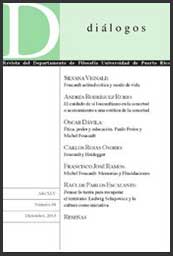Abstract
In the following essay the concepts of plenitude and emptiness are examined in order to offer an understanding of some aspect of the Japanese philosopher and poet Eihei Dōgen‘s (1200-1250) mayor work the Shōbōgenzō. We also considered the Philosophy of Spinoza (1632-1677) and its confluences with Zen Buddhism. What is exposed here is the grounding of some ethical and ontological proposals which can allowed us to reconsidered the philosophical experience not only as a theoretical o speculative matter but also as a vital experiment with the limits of human condition. The interest is not to make an exercise on comparative Philosophy but to remove the soil and have an insight on what the Japanese language calls de «Way of mind and heart» (do shin: ).Downloads
Download data is not yet available.

